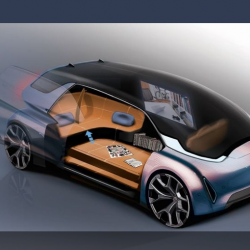To provide the best experiences, we use technologies like cookies to store and/or access device information. Consenting to these technologies will allow us to process data such as browsing behaviour or unique IDs on this site. Not consenting or withdrawing consent, may adversely affect certain features and functions.
The technical storage or access is strictly necessary for the legitimate purpose of enabling the use of a specific service explicitly requested by the subscriber or user, or for the sole purpose of carrying out the transmission of a communication over an electronic communications network.
The technical storage or access is necessary for the legitimate purpose of storing preferences that are not requested by the subscriber or user.
The technical storage or access that is used exclusively for statistical purposes.
The technical storage or access that is used exclusively for anonymous statistical purposes. Without a subpoena, voluntary compliance on the part of your Internet Service Provider, or additional records from a third party, information stored or retrieved for this purpose alone cannot usually be used to identify you.
The technical storage or access is required to create user profiles to send advertising, or to track the user on a website or across several websites for similar marketing purposes.
 By 2050, cars will be completely driverless, electric and kitted out for hosting business meetings on the go, a report has claimed. Instead of a driving seat, there will be seats facing inwards and a screen for delivering presentations and making conference calls. The predictions in Auto Trader’s Car of the Future report are based on the forecasts of futurologist Tom Cheesewright and a survey of more than 2000 drivers to identify features that would be popular with consumers. (more…)
By 2050, cars will be completely driverless, electric and kitted out for hosting business meetings on the go, a report has claimed. Instead of a driving seat, there will be seats facing inwards and a screen for delivering presentations and making conference calls. The predictions in Auto Trader’s Car of the Future report are based on the forecasts of futurologist Tom Cheesewright and a survey of more than 2000 drivers to identify features that would be popular with consumers. (more…)

























March 18, 2019
Artificial Intelligence is transforming the workforce as we know it
by Dennis Spaeth • AI, Comment, Technology
(more…)